 Martenitsa adds glamour to Bulgarian Embassy
Martenitsa adds glamour to Bulgarian Embassy
 Mysterious 'Dolan Tribe' in Xinjiang
Mysterious 'Dolan Tribe' in Xinjiang
 This is Shanghai
This is Shanghai
 Female attendants serving 'two sessions'
Female attendants serving 'two sessions'
 The many tears of DiCaprio
The many tears of DiCaprio
 Dan Dan's bittersweet opera life
Dan Dan's bittersweet opera life
 A dream wedding for a girl suffering from cancer
A dream wedding for a girl suffering from cancer
 Old photos of Anti-Japanese War (1937-1945)
Old photos of Anti-Japanese War (1937-1945)
 This is Beijing – Nanluoguxiang
This is Beijing – Nanluoguxiang
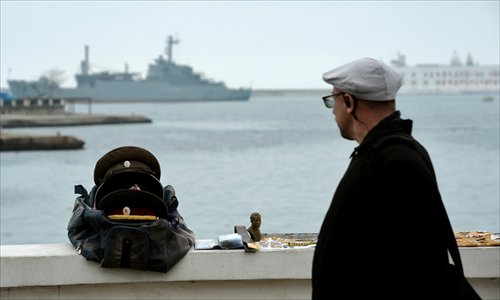 |
| A Ukrainian man looks at a Russian navy ship as he passes by old military paraphernalia sold on the side of the harbor in Sevastopol on Friday. (AFP) |
The heads of Russia's two houses of parliament on Friday indicated Moscow intended to respect the decision of Crimean lawmakers to stage a March 16 referendum despite the US and its allies threatening tougher sanctions.
"We will respect the historic choice of the people of Crimea," said Russian lower house speaker Sergei Naryshkin at a meeting with the Crimean delegation. "We support the free and democratic choice of the population of Crimea."
His upper house counterpart Valentina Matviyenko said "should the people of Crimea decide to join Russia in a referendum, we ... will unquestionably back this choice."
The comments came a day after the parliament in Crimea agreed to ask President Vladimir Putin for the region to become part of Russia and resolved to put the issue to a public vote.
There seems no doubt the request to join Russia would be approved by a referendum, said Xing Guangcheng, an expert on Russia at the Chinese Academy of Social Sciences, but the question remained whether Russia would accept the request to receive the region.
Russia had the initiative, but it would have to weigh advantages and disadvantages to incorporating Crimea, said Li Dong, deputy director of the Institute of Russian Studies at the China Institutes of Contemporary International Relations.
Bringing Crimea back would help Russia tighten its grip on Black Sea ports and might inspire the eastern region of Ukraine to follow Crimea's example, Li told the Global Times.
He said that the move might push the rest of Ukraine or at least the western region totally over to the West.
Further worsening of relations with the US and EU and potential economic sanctions should also be considered, Li warned.
US President Barack Obama and EU leaders on Thursday denounced the referendum as illegitimate, saying it would violate Ukraine's constitution.
Hours after Washington imposed visa bans and readied further sanctions on Russian officials, Obama talked with Putin. In their telephone call, Obama urged Putin to accept the terms of a potential diplomatic solution to the dispute over Crimea.
But Putin on Friday rebuffed the warning from Obama over Moscow's military intervention in Crimea, saying that Russia could not ignore calls for help from Russian speakers in Ukraine.
Putin said in a statement that Moscow and Washington were still far apart on the situation in the former Soviet republic, where he said the new authorities had taken "absolutely illegitimate decisions" on the eastern, southeastern and Crimea regions.
China on Friday voiced opposition to sanctions and called for a political solution to the ongoing crisis.
"The Chinese side is always opposed to the frequent use of sanctions or the threat of sanctions in international relations," said Chinese Foreign Ministry spokesman Qin Gang.
The Russian Foreign Ministry Friday slammed the reports that Russia decides to cut ties with Ukraine.
"The Russian Foreign Ministry is appalled and even shocked by how many Ukrainian media outlets have grossly misrepresented the statements by the Russian permanent representative to the UN regarding Russia's contacts with the authorities in Kiev. The allegation that Moscow has decided to sever diplomatic ties with Ukraine sounds particularly provocative," the ministry told the Interfax.
Armed men at a checkpoint flying the Russian flag blocked Organization for Security and Co-operation in Europe observers from entering Crimean peninsula for a second day on Friday.
Also on Friday, a US warship crossed Turkey's Bosphorus Strait, headed towards the Black Sea. A coast guard boat was seen escorting the guided-missile destroyer, the USS Truxtun.
The US Navy said the ship was to conduct military exercises with Bulgarian and Romanian naval forces.
Russian energy giant Gazprom on Friday warned Ukraine it could cut off gas exports if the new authorities in Kiev did not pay a bill for debt that now stands at $1.89 billion.
Gazprom in 2009 cut off gas to Ukraine in a move that also left much of the EU without supplies.
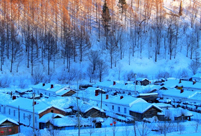 Chaihe village, pure and peaceful fairyland in snow
Chaihe village, pure and peaceful fairyland in snow Belgians warmly welcome arrival of China's giant pandas
Belgians warmly welcome arrival of China's giant pandas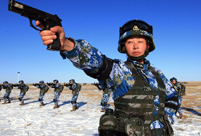 Female marines receive tactical training in NW China
Female marines receive tactical training in NW China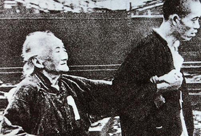 Blood memory: Nanjing Massacre in 1937
Blood memory: Nanjing Massacre in 1937 Top 10 pure beauties in showbiz
Top 10 pure beauties in showbiz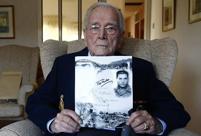 British WWII veteran: I can't forgive Japan
British WWII veteran: I can't forgive Japan Tongban's dream of prosperity
Tongban's dream of prosperity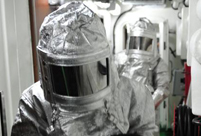 Chinese frigate Yancheng holds drills in Mediterranean Sea
Chinese frigate Yancheng holds drills in Mediterranean Sea A visit to comfort woman's home in South Korea
A visit to comfort woman's home in South Korea Fairyland? Qingdao in sea of clouds
Fairyland? Qingdao in sea of clouds Top 10 most handsome faces in Asia in 2013
Top 10 most handsome faces in Asia in 2013 Female celebs with beautiful long legs
Female celebs with beautiful long legs Cat 'guardians' in Forbidden City
Cat 'guardians' in Forbidden City Large numbers of ancient coins excavated in Inner Mongolia
Large numbers of ancient coins excavated in Inner Mongolia Leisurely life beneath Zhonggulou, where time travels slower
Leisurely life beneath Zhonggulou, where time travels slowerDay|Week|Month